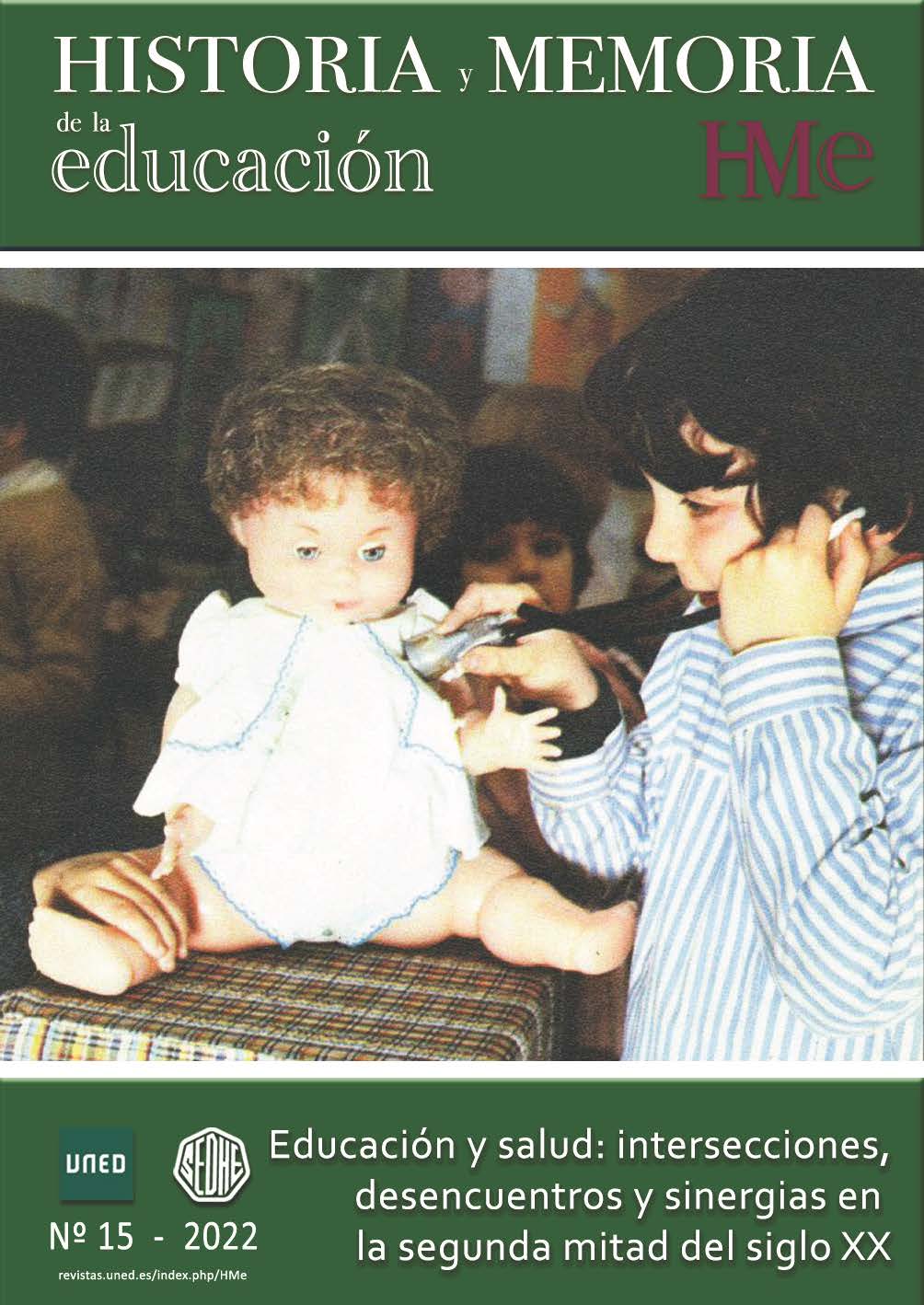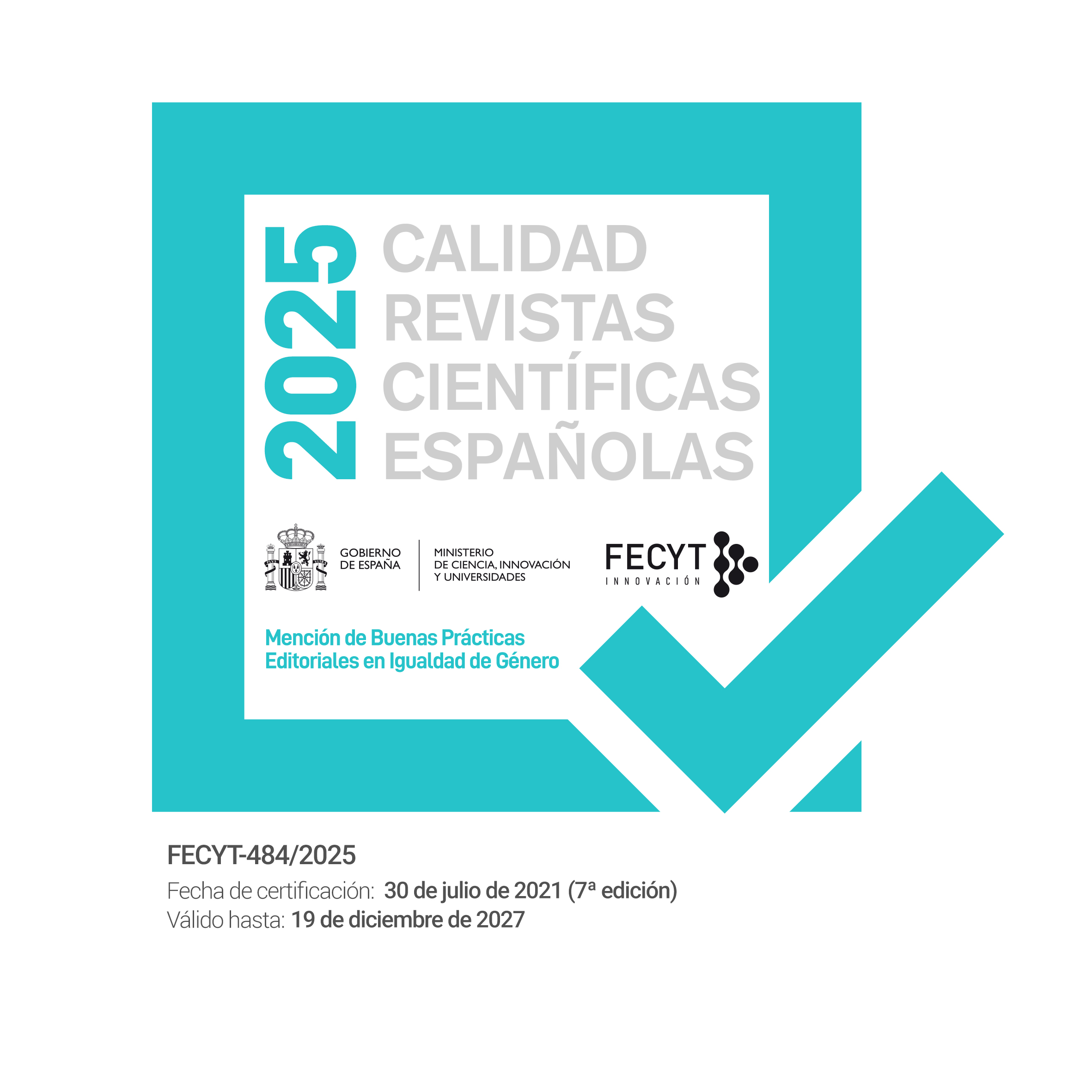Women’s access to higher education through the Church’s teacher training colleges. The case of the Escuni Teacher Training School between 1970 and 1983
DOI:
https://doi.org/10.5944/hme.15.2022.27521Keywords:
Women, Women's education, Teacher training, Teacher training schools of the Church, EscuniAbstract
The Church has played a prominent role in the field of teacher training in Spain, especially since the 1945 Primary Education Act, which allowed the Church to open and organize its own teacher training colleges. The analysis of the statistical data during the decade of the seventies of one of these schools, the current Centro de Estudios de Magisterio Escuni, in Madrid, shows us the characteristics of this type of school, of its student body and of the fundamental presence of women in them. This meant the increasing incorporation of women into society, something that also happened with their entry into the state public training schools, with which the private schools of the Church are compared. We observe that these studies have provided a fundamental access to the world of culture and higher education for women, an aspect that we see reflected not only in state schools but also in those of the Church.
Downloads
References
Alcalde, Fortunato. Cincuenta años de historia (1948-1998). Forjando educadores. Escuela Universitaria La Salle. Madrid: Imprenta Villena, 2001.
Ballarín Domingo, Pilar. «La educación contemporánea de las mujeres». En Historia de la educación en la España contemporánea, diez años de investigación, editado por J.L. Guereña, Julio Ruiz Berrio y Alejandro Tiana Ferrer, 173-190. Madrid: Ministerio de Educación y Ciencia, 1984.
Ballarín Domingo, Pilar. La educación de las mujeres en la España contemporánea (s. XIX-XX). Madrid: Síntesis, 2001.
Carreño, Miryam. «Chicas en la postguerra, un análisis sobre el aprendizaje de género». Historia de la Educación: Revista Interuniversitaria 22-23 (2003-2004): 79-104.
Escolano Benito, Agustín. «La arquitectura como programa. Espacio-escuela y curriculum». Historia de la Educación vol. XII-XIII (1993-94): 97-120
Faure, Pierre. «Estudios generales. La enseñanza personalizada, orígenes y evolución». Revista de Educación, 247 (1976): 5-10
Flecha García, Consuelo. «Profesoras y alumnas en los institutos de segunda enseñanza (1910-1940)». Revista de Educación, núm. extraordinario sobre «La educación en España en el siglo XX» (2000): 269-294.
Flecha García, Consuelo. «Desequilibrios de género en la educación en la España Contemporánea: causas, indicadores y consecuencias». Áreas. Revista Internacional de Ciencias Sociales 33 (2014): 49-60. https://revistas.um.es/areas/article/view/216041
Gutiérrez Ruiz, Irene. Experiencia Somosaguas. Madrid: Iter Ediciones, 1971
Gutiérrez Ruiz, Irene. El maestro de la Experiencia Somosaguas. Tendencias pedagógicas 14 (2009): 181-189.
Guzmán, Manuel de. Vida y muerte de las escuelas normales. Barcelona: PPV, 1986.
Holgado Barroso Juan, José Márquez de la Plata y Manuel Martín Riego. De la Escuela de Magisterio de la Iglesia al CES Cardenal Spínola CEU (1957-2011): historia de una institución. Sevilla: Fundación Universitaria San Pablo CEU, 2013.
Landsheere, Gilbert de. La formación de los enseñantes de mañana. Madrid: Narcea, 1979.
Lerena Alesón, Carlos. «El oficio de maestro. La posición y papel del profesorado de primera enseñanza». Sistema. Revista de Ciencias Sociales 50-51 (1982).
Martínez García, José Saturnino. «Clase social, género y desigualdad de oportunidades educativas en España (1977-2004)». Revista de Educación 342 (2007): 287-306.
Matas Pastor, Joan Josep. Las Hermanas de la Pureza de María en la formación de maestros y comunicadores. Historia del Centro de Enseñanza Superior Alberta Giménez (1974-2014). Madrid: Universidad Pontificia Comillas, 2015.
Mencía, Emiliano. «Escuelas unidas-escuela universitaria». En Veinticinco años abriendo horizontes. Escuni 1970-1995, dir. Dolores María et al. Madrid: Imprenta Artegraf, S.A. 1995
Muñoz Vitoria, Fernando. El sistema de acceso a la universidad en España (1940-1990). Madrid: Ministerio de Educación y Ciencia, C.I.D.E, 1993.
Ortega Gutiérrez, Félix. «Un pasado sin gloria. La profesión de maestro». Revista de Educación 284 (1987).
Ortega, Félix y Agustín Velasco. La profesión de maestro. Madrid: Ministerio de Educación y Ciencia, CIDE, 1984.
Puelles Benítez, Manuel de. «Oscilaciones de la política educativa en los últimos cincuenta años: reflexiones sobre la orientación política de la educación». Revista Española de Pedagogía 192 (1992): 311-319.
Rabazas Romero, Teresa y Sara Ramos Zamora. «La construcción del género en el franquismo y los discursos educativos de la Sección Femenina». Encounters on education=Encuentros sobre educación=Recontres sur l´éducation, 7 (2006): 43-70.
Tena Artigas, Joaquín, Luis Cordero Pascual y José Luis Díaz Jares. La educación en España, análisis de unos datos. Madrid: Ministerio de Educación y Ciencia, 1978.
Toledo, Genoveva. «Las escuelas de magisterio de la Iglesia en Madrid y su aportación a la formación de maestros (1945-1970)». PhD diss., Universidad Complutense de Madrid, 1984.
Varela, Julia y Félix Ortega. El aprendiz de maestro. Madrid: Ministerio de Educación y Ciencia, 1984.
Viñao Frago, Antonio. Escuela para todos. Educación y modernidad en la España del siglo XX. Madrid: Marcial Pons, 2004.
Zaballos Crespo, Josefa. Origen y evolución histórica de la escuela universitaria “Don Bosco”. Madrid: Servicio de Publicaciones de la Universidad Complutense, 2005.
Downloads
Published
How to Cite
Issue
Section
License
Copyright (c) 2021 Historia y Memoria de la Educación

This work is licensed under a Creative Commons Attribution-NonCommercial 4.0 International License.
Authors who publish in Historia y Memoria de la Educación agree to the following terms:
- Authors retain copyright and grant the journal right of first publication with the work simultaneously licensed under a Creative Commons Attribution-NonCommercial 4.0 International that allows others to share the work with an acknowledgement of the work's authorship and initial publication in this journal.
- Authors are able to enter into separate, additional contractual arrangements for the non-exclusive distribution of the journal's published version of the work (e.g., post it to an institutional repository or publish it in a book), with an acknowledgement of its initial publication in this journal.
- Authors are permitted and encouraged to post their work online (e.g., in institutional repositories or on their website) prior to and during the submission process, as it can lead to productive exchanges, as well as earlier and greater citation of published work (See The Effect of Open Access).












